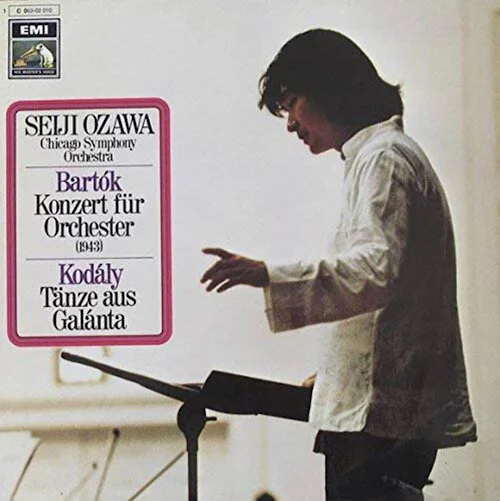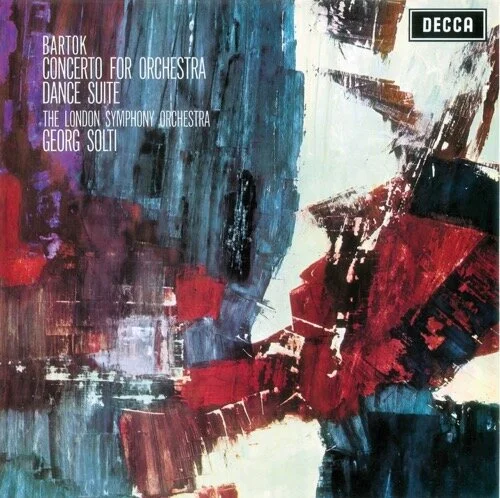Streaming the Classics/Concerto for Orchestra—Bartók
Do you ever type a streaming query in Roon for a classical work and are overwhelmed by the choices? Rather than clicking on any old recording or the first one you see, Audiophilia will make things a little easier for you and do the heavy listening.
These choices are for streaming only. Is the best in streaming also the best vinyl recording and performance? That’s for another article.
A few criteria:
Recording must be on Qobuz and/or Tidal HiFi.
It does not have to be HiRes or MQA.
No more than ten recommendations in no particular order, then my top three for streaming in order of preference.
Béla Bartók was on his uppers in late 1943 both in health and financially—bedridden with undiagnosed leukaemia and close to broke, relying on a small stipend from Columbia University and the charity of friends. At just the right time, the great Russian conductor of the Boston Symphony, Serge Koussevitzky headed to New York with a musical lifeboat of sorts—a lucrative commission funded by the conductor’s musical foundation.
Bartók was so invigorated by the commission, he composed the work in six weeks. It was first performed to triumphant acclaim in Boston on Dec 1, 1944.
The work not only demonstrates Bartók‘s innate elegance and flawless technique as a composer, but is filled with deeply beautiful melodies, rhythms from his Hungarian homeland, parody, superb orchestration (timpani glissando, harps played with metal ‘sticks’—harpists use guitar picks, metal and wooded spoons for the unique effect) and a wide variety of musical expression markings. The piece is beloved by players and audience alike.
As you would imagine with such a prominent work, there are numerous recordings, many of them very famous. Qobuz and Tidal are full of them.
Here are ten that are notable. Much like the previous instalment of Streaming the Classics, The Firebird, any of these ten performances get to the essence of the work’s genius. The final top three choices are not only legendary performances, but enjoy specific insights into interpretation and are equally brilliant recordings.
Our ten in no particular order:
1, Sir Georg Solti/Chicago Symphony/Decca
2. Sir Georg Solti/LSO/Decca
3. Fritz Reiner/Chicago Symphony/RCA
4. Pierre Boulez/Chicago Symphony/DG
5. Ferenc Fricsay/Berlin Radio Symphony/DG
6. Gustavo Dudamel/LA Philharmonic/DG
7. Seiji Ozawa/Chicago Symphony/Warner
8. Charles Dutoit/Montreal Symphony/Decca
9. Christoph von Dohnányi/Cleveland Orchestra/Decca
10. Leonard Bernstein/New York Philharmonic/Columbia
You’ll notice an abundance of Chicago playing and the three greatest Hungarian conductors, Reiner, Solti and Fricsay in the list. And although considered German, number 9, Christoph von Dohnányi is from a very prominent Hungarian musical dynasty.
In his youth, Bartók roamed the Hungarian countryside collecting and recording folks songs, many of which show up in his works used as melodic material. Specific Hungarian rhythms are also prevalent. And this musical language and style imbues much of the Hungarian conductors’ approach to their recordings. A Magyar (not Slavic) urtext. It’s not happenstance that all three conductors make it in to the ‘finals’ of this post.
Once again, a Montreal/Decca leads in best recording category. If we’re playing vinyl, the Reiner/RCA and Solti/Decca are legendary and very valuable in mint condition. Both are superb when streaming, too. But the Montreal has a sheen to it that is quite beguiling. Very fine playing as well.
The Fricsay recording/performance is wonderful for its authenticity, excellent playing from Berlin Radio and atmospheric DG recording. Fricsay is finally receiving his mainstream druthers, primarily from DG releases such as this and a wider audience appreciating his superb musicianship.
The later Solti/Chicago/Decca (London) is almost as good as his famous LSO version—probably better played, but not as fine a recording or as a ‘pure animal’ interpretation. I once sat behind the London Philharmonic in the Choir Stalls at London’s Royal Festival Hall with Solti conducting Concerto for Orchestra. The ‘screaming scull’, as brave players used to call him, looked at the orchestra at certain times during the performance with a ‘play or die’ expression on his face. I’ve never seen any thing like that on any other conductor. He received a suitable response from his wonderful orchestra.
Solti cut a formidable figure wherever he landed—just ask the artists of the Royal Opera House, Covent Garden after he arrived in 1960. It was a virtual blood letting. Same for the London Phil when he took over during his reign in Chicago (he loved London, hence the Knighthood, the British citizenship and 2nd wife, and hated Chicago, never buying a house, rather, living permanently in the Drake Hotel!). In his autobiography, he assigns one line to my beloved conducting professor, Bernard Keefe, his assistant at the Garden. They despised each other. I remember Keefe in one lesson calling him ‘nothing but a speed merchant’!
The Dudamel, like much of this type of repertoire he records in Los Angeles, is wonderful. A firebrand interpretation with outstanding playing and recorded live in their fabulous hall. Same, too, for Seiji Ozawa. His Boston performance on DG is excellent, but the earlier Chicago is pretty special.
Which brings us to my final 3. Once again, legendary recordings never eclipsed by today’s young lions.
Fritz Reiner/Chicago Symphony/RCA
Sir Georg Solti/LSO/Decca
Ferenc Fricsay/Berlin Radio Symphony Orchestra/DG
The Solti/LSO is so intense, the playing virtuosic and the recoding equally powerful—if a recording can ever be ‘powerful’? You cannot go wrong with 60’s Solti or the 50’s Fricsay.
But just as the Dorati/LSO/Mercury 1960 Firebird was unmatched, the same may said for the Fritz Reiner Concerto. This greatest Hungarian maestro is magisterial in Bartók‘s masterpiece. The Chicago Symphony, which really owns this piece, is second to none, here. Every solo is played spectacularly with flawless ensemble. Since 1958, still top of the heap.












